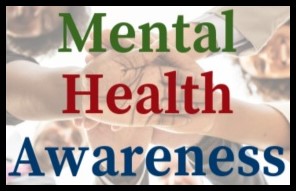
Our Mental Health Awareness series continues with a focus on eating disorders.
Mental health problems often have a negative effect on one's physical health, and, arguably, none more so than an eating disorder.
Some people may think an eating disorder is "just a phase" one goes through. Or they think that a person with an eating disorder is just a "picky eater." It can be difficult for some people to understand that a person with eating disorder behaviors has a very real, serious health problem that can cause severe physical illness or death.
How does someone develop an eating disorder? There are a variety of answers to that question, but here are some reasons:
- We feel like food is the enemy.
- We feel that the more we eat, the more substantial and safe we are.
- We feel shame about the way we look.
- We feel like the only friend we can depend on is food.
- We feel that extreme stress has taken over our lives, and the only thing we can control is the food we eat.
While people of any age can develop an eating disorder, statistics show that young people are more likely to be at risk, as seen in this chart, opens a new window from CNN and the National Eating Disorders Association, opens a new window. For more statistics about eating disorders in the U.S., see this fact sheet, opens a new window from the Eating Disorders Coalition, opens a new window.
Eating disorders are treatable. Typically a treatment plan for a person with an eating disorder is customized for that person’s individual needs. Treatment can involve regular visits to a physician, medication, nutritional counseling, and psychological therapy. Sometimes, if a person with an eating disorder is suffering from malnutrition, he or she will need to be hospitalized. Overcoming an eating disorder can be a slow and difficult process. Unfortunately, for these and other reasons, some people with an eating disorder feel unable or unwilling to get help.
Please note: this discussion of eating disorders is for informational purposes only, and is not meant to take the place of a visit to or advice from a healthcare professional. If you or someone you know has an eating disorder, please talk to a healthcare professional. It will not be easy at first, but it can make all the difference.
We have compiled a list of St. Tammany Parish Library materials and external websites that may be helpful for those of us who are experiencing an eating disorder:
If you are interested in reading some of our previous blog posts in this Mental Health Awareness series, please follow these links:
Mental Health Awareness: Anxiety Disorders, opens a new window



Add a comment to: Mental Health Awareness: Eating Disorders